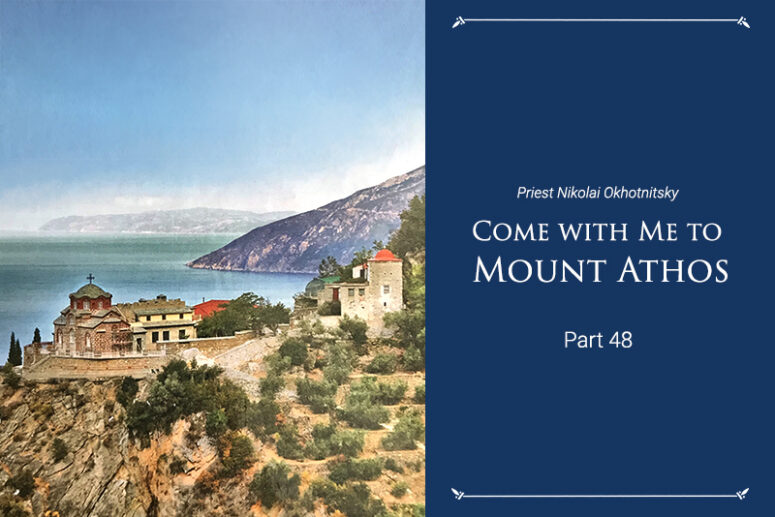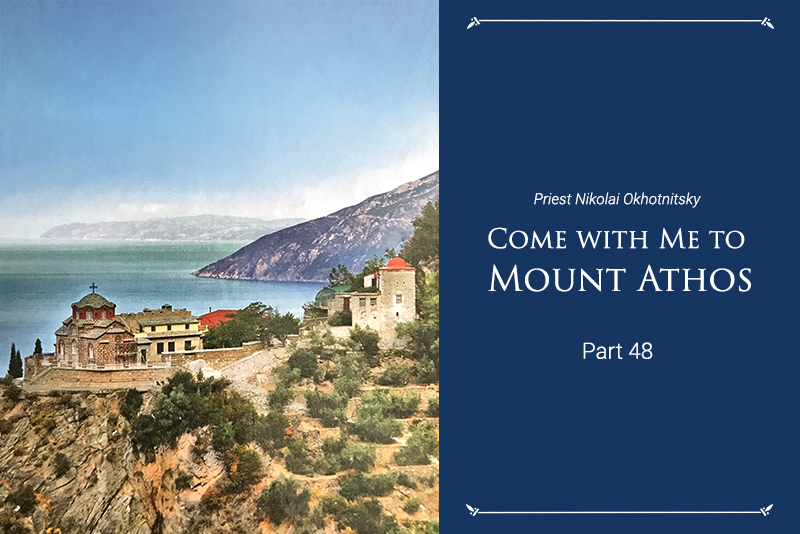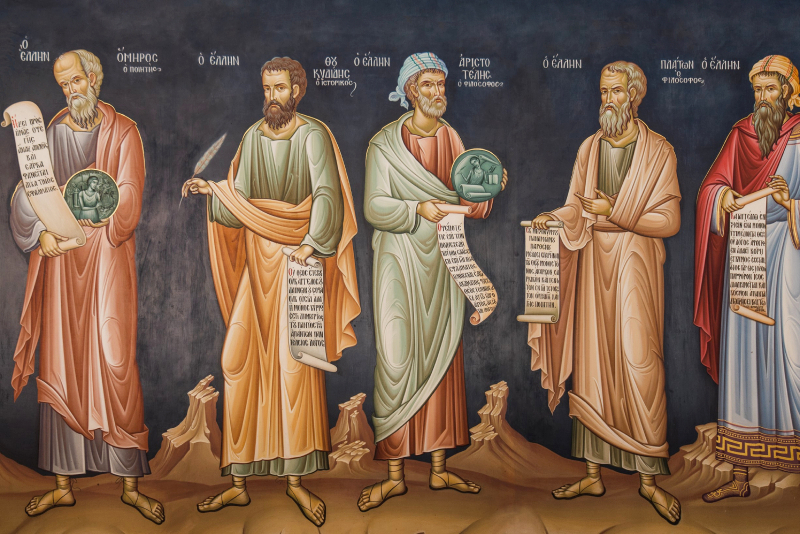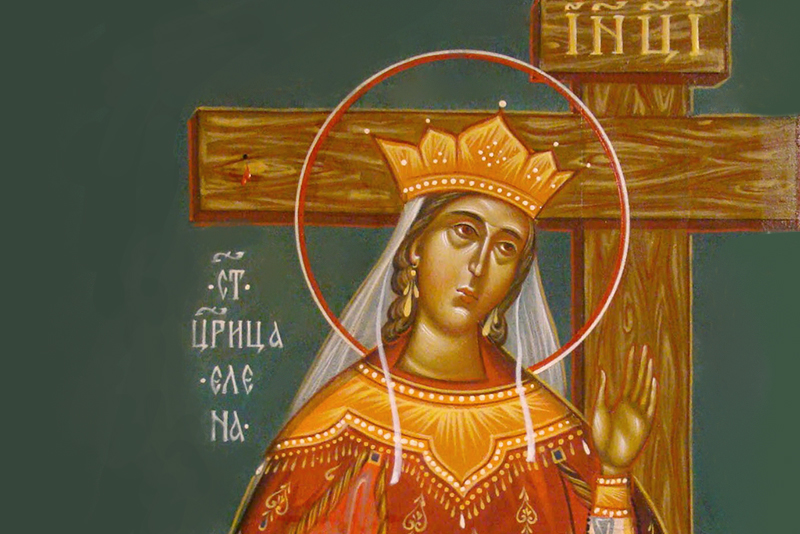
Evening at St Gregory Monastery
The shower was opposite our room door. Suddenly Igor and I dropped our backpacks near the beds and began undressing and trying to quickly take our toiletries, jump into slippers and make it to the door. I beat Igor by one hundredth of a second and got in the shower first. What a delight! With my overheated face under the life-giving, cool jets of water, I felt like a fish returning into the ocean after being thrown ashore by a random wave. I was revived and clean as a newborn child. I opened the shower door and before I was able to get out, Igor was already opening the faucet. Everyone needs a shower on a hot day, but very few people can miraculously teleport there like Igor.
My bed was right next to the window. Climbing on this ‘lifeboat’, I took my notebook and began to sway on the waves of today’s memories. Overcoming the steep slopes, I reached this cozy room No. 21 once again. It was easy to write, with all my memories clear and vivid. In the meantime, the sea was lapping outside the window, “Shhh. Shhhhh. Shshshshsh.”
After finishing writing, I took my phone. I made at least 10 attempts to contact Valera during the day. I knew that nothing would happen to him, but I was still a little worried.
When everyone had smoothed their ruffled feathers, it was time to go to the evening service. As we were passing the first monastery courtyard, we heard the wooden semantron. The cathedral church, consecrated in honor of St Nicholas the Wonderworker, smelled of antiquity and incense. I was worried about our meeting with St Nicholas, which did not happen in Stavronikita, but now I realized that it was simply postponed.
I asked the senior chorister where I could stand during the service. He showed me the stasidia on the left side, near the readers. After the exclamation, the service began.
Mental Prayer or Self-professed Philosophy
Thoughts during prayer, no matter how lofty, are images that can be compared to bright outdoor advertisements, diverting the travelers’ attention from the road. However, it is difficult for a person to get rid of thoughts. The movement of thought is a natural part of our nature. Unfortunately, the enemy of the human race also uses it. Even a monk who has devoted his whole life to noetic doing may be unable to overcome those demonic entities using the “movies” in his head to scatter his attention, without which prayer has no fruit. A person can direct all his will in order to acquire pure prayer, but he can overcome the forces of the “abyss” that clog the consciousness, only if God helps him. However, “The wind blows where it chooses.” You can ask Him, but you cannot make Him.
Personal volition is of the utmost importance for the knowledge of God. This volition is defined by our motivation. For example, I may want to acquire pure prayer in order to achieve personal perfection (c.f. “and you will be like God” Gen. 3:5). Alternatively, I may want to achieve pure prayer for particular spiritual experiences. Finally, I may be like an orphan, looking for my Parent, Whose caring and gentle warmth my soul still remembers. This is a completely different motive. If a person has such a motive of unconditional (albeit still primitive) love and undertakes labors (even small ones, from the point of view of true zealots), his chances to acquire the adopting grace of the Spirit are higher than everyone else’s. Only love is a pass to the heavenly world. At one time, Priest John Sergiev, flaming with such love for God, was visited by the grace of the Holy Spirit. Later, the world recognized this priest as the great shepherd, the Holy and Righteous John of Kronstadt. At that time, many of the clergy looked at the Saint as wandering in delusion.
I was lucky to be acquainted with Nina Romanovna Kozlovskaya, a beautiful and bright woman who lived an amazing life. She was born blind and she grew up, comprehending life by touch. Once, nuns from St Petersburg traveling around Russia, collecting donations for St John’s Monastery, stayed in their house. Noticing a blind seven-year-old girl walking around the house, they asked her parents about their misfortune and offered to write a letter to Father John with a request to pray for little Nina. These nuns took the letter with them, so that they would deliver it directly to the priest. Some time later, they came to St Andrew’s Cathedral in Kronstadt with this letter. They had almost made it to the Ambon when they heard the voice of St John. He said, “Oh, I know, I know! Nina can see already.” At this time, a thin and joyful voice of a seven-year-old girl sounded in a small apartment in the border town of Grodno, “I can see you, mommy!” I will omit other details of this miracle. Once, on the Feast of Epiphany, a local priest came to consecrate the house where Nina Romanovna lived. Having sprinkled the apartment with Epiphany water, he went to the family prayer corner and, pointing his finger at the photograph of Father John Sergiev (who was not yet glorified at that time) he asked, “What is this one doing here?” Nina Romanovna’s mother answered him humbly and with dignity, “Father N, if you do for our family as much as Father John did, I will put your photo here also.”
Father Vasily Ermakov called such zealots from the clergy “sufferers from photophobia”.
My readers may be wondering why I developed my “philosophy” on the pages of a story about Mount Athos. The answer is simple. I spent the evening service at St Gregory with my prayer rope, trying to focus my attention, listening to the reading and the singing, and still I was carried away by an array of thoughts. I had to declare my unfitness for the knowledge of God. Alas.
Translated by The Catalogue of Good Deeds
Part 1
Part 2
Part 3
Part 4
Part 5
Part 6
Part 7
Part 8
Part 9
Part 10
Part 11
Part 12
Part 13
Part 14
Part 15
Part 16
Part 17
Part 18
Part 19
Part 20
Part 21
Part 22
Part 23
Part 24
Part 25
Part 26
Part 27
Part 28
Part 29
Part 30
Part 31
Part 32
Part 33
Part 34
Part 35
Part 36
Part 37
Part 38
Part 39
Part 40
Part 41
Part 42
Part 43
Part 44
Part 45
Part 46
Part 47
Part 48




